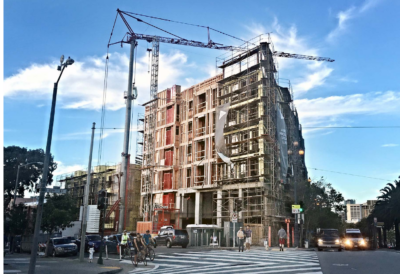Bay Area Council Poll: Voters Say It’s Getting Much Harder to Find Housing
Overwhelming support for ADUs, infill and transit-oriented housing and converting unused office space to housing; support also strong for allowing duplexes, triplexes & fourplexes in areas zoned for single-family homes
The number of Bay Area voters who say it’s gotten much harder to find housing spiked this year, according to the 2022 Bay Area Council Poll. And while voters continue to rank the region’s astronomical housing costs and limited supply near the top of the Bay Area’s biggest issues, they offer some mixed views on what to do about it. Voters overwhelmingly support accessory dwelling units (ADUs), infill housing near jobs and transit, and even converting excess office and commercial space to housing.
Read the topline poll results>>
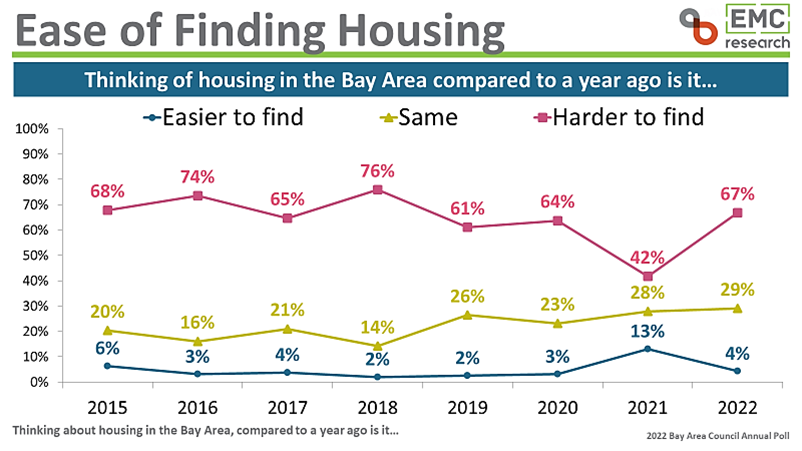
The poll found that 67% of Bay Area voters say finding a place to live got harder over the past year, up dramatically from 42% in 2021 after declining from 76% in 2018. In addition, 65% of voters said they are concerned about their ability to find affordable housing for themselves. Among the 48% of voters who said they are considering leaving the Bay Area in the next couple of years, high housing costs and rents were cited among the top reasons.
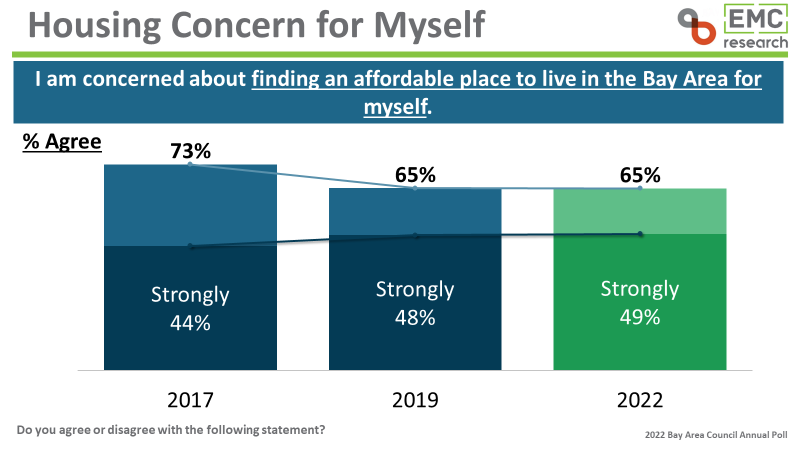
“Everything starts and ends with housing in the Bay Area and California,” said Jim Wunderman, President and CEO of the Bay Area Council. “We’ve had some success in recent years in winning badly needed housing reforms, but the solutions so far just haven’t reached the scale of the problem. The lack of housing is hurting our most vulnerable residents the most, damaging our economy and environment and chasing people, jobs and businesses out of the region and state. State and local leaders must find the courage to do more, to reject misguided local resistance to housing, embrace deeper reforms and end this tragedy.”
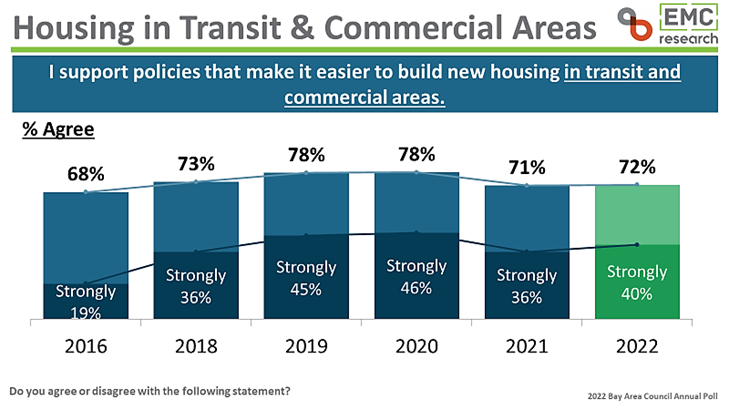
Large majorities of voters support various strategies for addressing the Bay Area’s housing crisis, including making it easier to build housing near transit and job centers (72%). There was even higher support (79%) for allowing cities to approve projects of up to 10 units near transit and urban infill areas. Voters are also very supportive (61%) of allowing duplexes, triplexes, and fourplexes in areas currently zoned for single-family housing, consistent with legislation approved last year that allows homeowners to subdivide lots to build additional housing units.
With uncertainty about the extent to which companies will return to physical offices as they shift to increased remote work in the wake of the pandemic, 83% of voters support converting unused office and commercial space to housing.
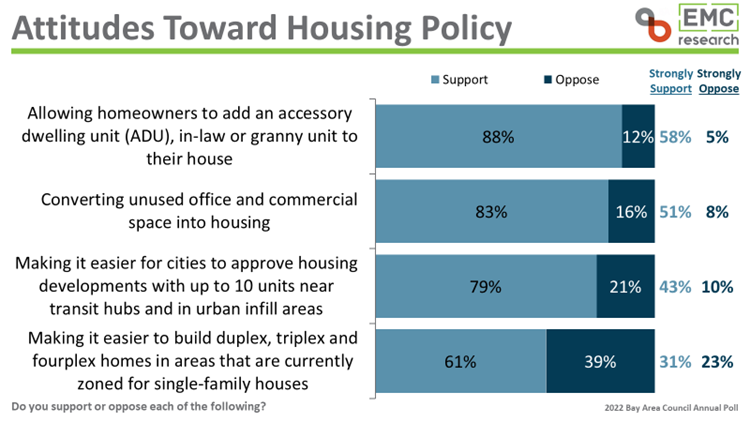
Support for ADUs reached 88% in the Bay Area Council Poll, with 37% of homeowners saying they would consider adding an ADU to their home. That’s a notable increase from 2017, when 25% said an ADU could be in their future. Interest in ADUs has skyrocketed statewide since 2016, when the Bay Area Council sponsored the first in a series of (SB 1069, Wieckowski) reform bills that have eliminated excessive fees and other costly regulatory and local zoning and land use barriers. Indeed, the number of homeowners who say it’s not possible to build an ADU on their property has dropped from 42% in 2017 to 28% in 2022.
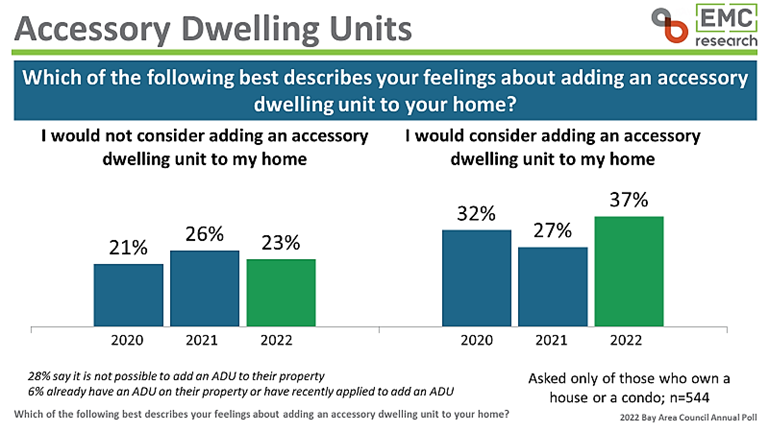
A majority (57%) of voters said they support building new housing in their neighborhood, largely consistent with recent years but a slight drop from the 64% in both 2019 and 2020 who embraced new housing near them.
An overall failure by cities to meet state housing requirements has been cited as a major reason for California’s historic housing shortage and affordability crisis, and has sparked legislation to hold local jurisdictions accountable for producing more housing. Still, voters are not overly enthusiastic about relinquishing local control over housing decisions. The poll found 46% support for allowing state law to override local laws on where and how much housing can be built while 45% support allowing state law to override local land use and development laws that restrict new housing.
Voters do appear to support holding cities accountable for housing, with 57% supporting reducing state funding for cities that fail to provide enough housing.
Considerable variations emerged among ethnic groups, income levels and renters and homeowners on housing concerns and approaches for addressing the housing problem, but small sample sizes make it hard to draw definitive conclusions.
This study was completed by EMC Research on behalf of the Bay Area Council among a random sample of registered voters who responded to an email or text invitation to complete the survey. Demographics including age, gender, and ethnicity are representative of registered voters in the 9-County Bay Area. The survey was conducted March 2-9, 2022, and had 1,000 respondents, which carries a margin of error of plus or minus 3.1 percentage points. Previous polls were conducted in 2014, 2015, 2016 (residents of the Bay Area), 2017, 2018, 2019, 2020 and 2021 (registered voters).



